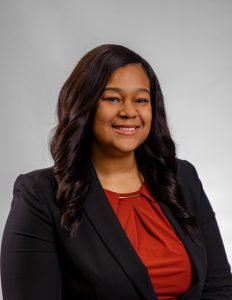Unraveling the No-Contact Rule: A Must-Know Guide for Florida Attorneys and Clients
The legal profession often encourages individuals to network and engage with various groups. However, there exists a critical exception: under no circumstances should you, as an attorney or client, converse with opposing parties in a legal case who already have legal representation. Below, we explain the significance of this unbreakable cornerstone, guiding you on the ethical path to successful advocacy and representation.
In the practice of law, maintaining the integrity of the legal process and protecting the rights of all parties involved is of utmost importance. A significant aspect of upholding these principles is adhering to the ethical rules governing attorney conduct. In the state of Florida, Rule 4-4.2 of the Rules Governing The Florida Bar addresses the “no-contact rule,” which regulates communication between attorneys and represented parties.
Overview of Rule 4-4.2
Rule 4-4.2, titled “Communication with Person Represented by Counsel,” is a foundational ethical rule for attorneys in Florida. Lawyers must obtain the consent of an individual’s attorney before communicating with them directly, according to the principle. The rule extends to any party, organization, or entity represented by legal counsel.
Rationale for the No-Contact Rule
The no-contact rule serves several essential purposes:
- Protecting the Represented Party: The primary goal of the rule is to safeguard the interests of individuals and entities who have legal representation. By prohibiting direct communication between opposing counsel and represented parties, the rule aims to prevent any potential coercion, undue influence, or manipulation that may harm the represented party’s legal rights.
- Preserving the Integrity of Legal Representation: The rule is designed to maintain the sanctity of the attorney-client relationship and the privilege that accompanies it. Allowing direct contact could undermine the trust and confidence that clients place in their attorneys to act in their best interests.
- Encouraging Professionalism and Civility: Upholding the no-contact rule fosters an atmosphere of professionalism and civility among attorneys. It promotes a respectful and fair legal process, encouraging attorneys to resolve disputes through appropriate channels rather than resorting to aggressive tactics.
Key Provisions of Rule 4-4.2
Rule 4-4.2 contains essential provisions that attorneys must familiarize themselves with to ensure compliance:
- Definition of “Represented Person”: The rule applies to individuals or entities who have retained legal counsel or have an attorney-client relationship, even if the representation is informal or temporary.
- Prohibition of Communication: Attorneys are prohibited from directly contacting a represented person about the subject matter of the representation without the consent of the represented person’s counsel. This prohibition applies regardless of whether the communication occurs in person, via telephone, email, social media, or by any other means.
- Communication Through Authorized Channels: Attorneys may only communicate with represented parties through the appropriate legal channels. This means contacting the represented party’s counsel or seeking court approval if necessary.
Exceptions to the No-Contact Rule
While Rule 4-4.2 generally prohibits direct communication with represented parties, like most facets in the legal world, certain exceptions exist:
- Consent: If the represented person’s attorney provides explicit consent for direct communication, then attorneys from the opposing side can engage in such communication. The consent exception also applies if the communication is authorized by law or court order.
- Communication in Open Court: Attorneys can communicate with represented parties during open court proceedings, hearings, or depositions.
- Governmental and Organizational Representatives: The rule does not apply to communications with agents, employees, or representatives of an organization or governmental entity, provided the communication is within the scope of their authority and responsibility.
Implications of Non-Compliance
Failure to comply with Rule 4-4.2 can have serious consequences for attorneys. Disciplinary actions, including sanctions, fines, or even disbarment, may be imposed for intentional or repeated violations. Additionally, communications made in violation of the rule could be subject to exclusion as evidence in court proceedings, potentially damaging the client’s case.
Understanding the key provisions and exceptions of R. Regul. FL. Bar 4-4.2 is crucial for attorneys to ensure compliance and uphold the highest ethical standards while representing their clients effectively. By respecting the attorney-client relationship and adhering to the no-contact rule, legal professionals contribute to a fair and just legal system in the state of Florida. Moreover, if you’re a Florida lawyer facing an ethical dilemma or uncertain about potential violations of the Florida Rules of Professional Conduct, you have a lifeline – the Florida Bar’s Ethics Hotline at 800-235-8619, available at no cost. Embracing the willingness to seek guidance in ambiguous situations and consulting an ethics attorney via this hotline could be the very key to salvaging your client’s case or safeguarding your career in the long run.
Authored by Mikayla T. Taylor, Esq.

The post Florida No-Contact Rule for Attorneys and Clients appeared first on Romano Law Group.




